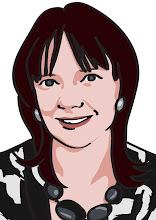
I recently did an analytical modeling project on a friend of mine who is an international speaker /trainer with a talent for running successful seminars. The technique that I use in my modeling of human 'excellence' elicits the person's experience, behaviour, beliefs, strategies and emotions as they do the exemplary behaviour.
In this high performance state, my friend has a clear 'sustaining emotion' without which he cannot do the ability. He called this state 'enlivened relaxation'. A state in which he feels vibrant, alive, vital yet very relaxed. He is focused on being in the moment and on the others in the class, rather than being 'self' conscious. In fact this state is similar to the underlying state in a study that I did on high performing aerospace engineers - they had a sense of challenge, the rush of adrenaline and feeling energised, coupled with a sense of relaxed awareness.
In this high performance state, my friend has a clear 'sustaining emotion' without which he cannot do the ability. He called this state 'enlivened relaxation'. A state in which he feels vibrant, alive, vital yet very relaxed. He is focused on being in the moment and on the others in the class, rather than being 'self' conscious. In fact this state is similar to the underlying state in a study that I did on high performing aerospace engineers - they had a sense of challenge, the rush of adrenaline and feeling energised, coupled with a sense of relaxed awareness.
Physiologically, this state brings numerous benefits in high performance situations. The sympathetic (active) and parasympathetic (passive) nervous systems are in balance. So our heart rate is coherent , our brain waves are predominantly alpha (creative, clear thinking state) and our breathing is smooth and rhythmic. We have abundant energy that is optimised and conserved by the system and we are in peak performance (or flow) state.
Well known by sports people, creatives and performers, the balance of activity and passivity that is achieved in this state ensures that mind and body are in union and 'interference' is minimal. The Refocuser blog has a great article on flow state. According to Refocuser, Bruce Lee was an ardent believer in the flow state (he referred to it as wu-hsin, flow’s Cantonese counterpart) and stated, "The consciousness of self is the greatest hindrance to the proper execution of all physical action" (Tao of Jeet Kune Do, p7). He believed that "physical stoppage", or the opposite of wu-hsin, could create many problems for a martial artist, as it would almost always result in hesitation and self-doubt.
Here are some tips for getting to the peak state:
- Release the breath. Free your diaphragm by breathing deep, smooth even breaths in and out, extending your lungs. Inhalation is tension and exhalation is freedom, the body and mind let go. On each exhale the mind becomes quieter, and the work can begin.
- Focus on relaxing. This applies particularly to the areas of the body where we clench, stiffen and resist. By relaxing the body, we relax the brain. Relax your jaw, notice how this helps to relax your neck. Feel the face relax and space being created around the temples. Let your tongue release from its position pinned against the roof of the mouth, and lie in the lower palet. Feel your brain relax!
- Notice your eyes. Tenseness of the eyes affects the brain. We are usually left brain driven, the logical, controlling brain is always trying to do, achieve, stay busy. Our eyes become narrow, screwed and our brow furrows in this 'trying' and striving. Relax your eye muscles and let your eyes become wide and open; soft and almost sinking back into your skull. Use your foveal vision rather than the focused lens-like vision - so that your awareness is wide angled. Be spreading our occular awareness from the back of your temples the back brain is more active. This is the synthesising, holistic brain (rather than the analytical and mechanical brain) - and when you take action with this part of the brain active it is luminous, filled with sensitivity and electric energy.
This is 'effortless effort' where lightness , wide open awareness and peak state prevails.
Related posts:












No comments:
Post a Comment